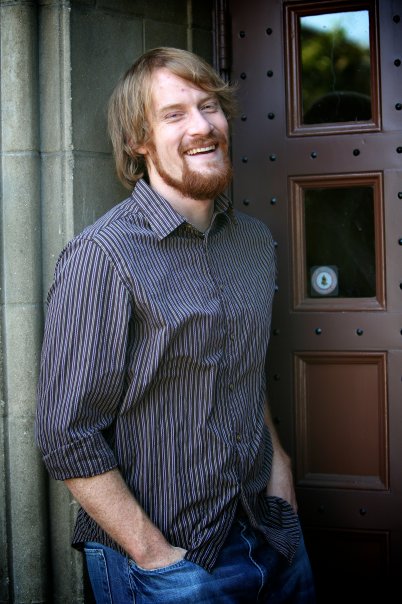As a church… as a culture…. we are easily seduced by the instantaneous.
Never has that been more true than in the age of Internet, fast food, and airplane travel. Yet the seduction of doing things as quickly as possible has been a part of Western life for over 150 years, since the dawn of the Industrial Revolution. The effect has simply snowballed.
Church communities have long since bought into this as well:
* The 19th century saw a rapid spread of Protestant Christianity in the US, which necessitated more “efficient” ways to become a Christian. Tenets of faith were reduced to simple “fundamentals” that everyone could digest, understand without much intense study, and were easily replicable. Theology became the means to substantiate this “Christianity Lite.” Circuit riders and wagons followed Manifest Destiny west.The proliferation only increased in speed with the advent of technologies such as the steam engine and the railroad, followed by the automobile and airplane.
* Pastoral care had to speed up, too. Inspired by the miraculous events in the scriptures, and perhaps by the testimonies of healing, some of these evangelists took up “healing ministries”—which was a convenient way to both continue full-fledged proliferation of the “gospel,” without having to get bogged down in slower, messier activities like relationships or compassion.
* Of course, while many denominations and groups maintained their devotion to compassion and justice, many communities spent less and less time on such things, unless of course doing so posed some direct benefit for their cause to “spread the easy-to-swallow Gospel.” Justice, fighting prejudice, challenging unjust laws, these things take time. The 19th and early 20th centuries still saw some progress, but it was around that time that people advocating for a “social gospel” were being demonized as heretics and Communists…such causes were deemed as ‘getting in the way’ of spreading the real Gospel message.

* All of these incipient trends began to accelerate in the mid/late 20th centuries. Along with it, churches and revivals became places of mass religious consumption, designed for maximum conversion rates. Reactions against liberation movements for women, blacks, and others led many churches’ silence or outright condemnation, which allowed abuse, scandal, and corruption to go unchecked in homes, businesses and in churches themselves. In the face of threatening post-Christian culture, churches catered more and more to the styles and modes and fashions that they hoped would make their Gospel-nuggets palatable again. Missionaries were being slowly replaced by the medium-term, and then the short-term missionary. This allowed more people to have “life-changing experiences,” but cost far more money, less of which actually went to the poor… but it was all good, because the trips gave the participants all the feelings of “investment,” without actually investing. Needs of the community have been farmed out to committees and sub-committees, all to find convenient, cost-effective solutions, advertised as easy, not-too-life-consuming “ways to get involved,” nearly always in the form of a structured church program.
Is it any wonder why people feel lonely in our world? Even at church?
It’s time for the church to think long-term.
To not do a hundred things at the shallowest of levels, but to do only a few things, and to do them well.
The new benchmark for church success? That people build deep, long-lasting, long-suffering relationships.
With each other. With community projects. With the poor, young, abused.
It’s time to stop judging a ministry on the basis of whether or not it “grows,” or if it leads to “conversions” (but probably not disciples)… but on the basis of the love that is shown, and grown.
It’s time to think in terms of years, not months…. and in DECADES, not years.
It’s time to realize that deep, systemic, deeply rooted-within-societal problems don’t go away with our prayers, if no loving action goes with it. And they don’t go away with our one-time action, or even, oftentimes, our one-year action. It takes deep, systemic, deeply rooted responses to such deep problems… which includes prayer, AND involvement, for the long-haul.
It’s time for churches, as well as the individuals in them, to build relationships. Real, two-way relationships. And to realize that these, unforced and uncajoled, take time to develop.
It’s time for churches seeking pastors, and new church leaders, to see the inevitable “downswing” that happens after new relationships are forged and the “honeymoon phase” is over, as an opportunity to “long-suffer” with another, rather than high-tail it and to look for another community, group, individual, etc. to fawn over, or to let fawn over you.
It’s time to stop patting ourselves on the back for only the things we measure as “success.”
And for the love of God, we must, we must, we MUST stop supplementing our quick-fix, easy-answer, instantaneous-results orientation with a “Gospel Lite.” The “Good News” is not truly good, until it affects every strata of living— physical, emotional, social, spiritual, political, ecclesial. Until it is Good News for those who long-suffer and carry heavy burdens of oppression, guilt, abuse, neglect, poverty, self-worthlessness. Until that Good News becomes Incarnate, en-fleshed, in the very midst of that suffering, and we then “suffer with” (com-passio) the suffering.
Even if it takes a while.
A LONG while.

….
Are we willing to work on behalf of others without immediate or continual payoff?
Are we able to?
Does our theology, our Gospel, give us the resources to do so?
“Let us not underestimate how hard it is to be compassionate. Compassion is hard because it requires the inner disposition to go with others to place where they are weak, vulnerable, lonely, and broken. But this is not our spontaneous response to suffering. What we desire most is to do away with suffering by fleeing from it or finding a quick cure for it.”
― Henri J.M. Nouwen
http://www.goodreads.com/author/quotes/4837.Henri_J_M_Nouwen












